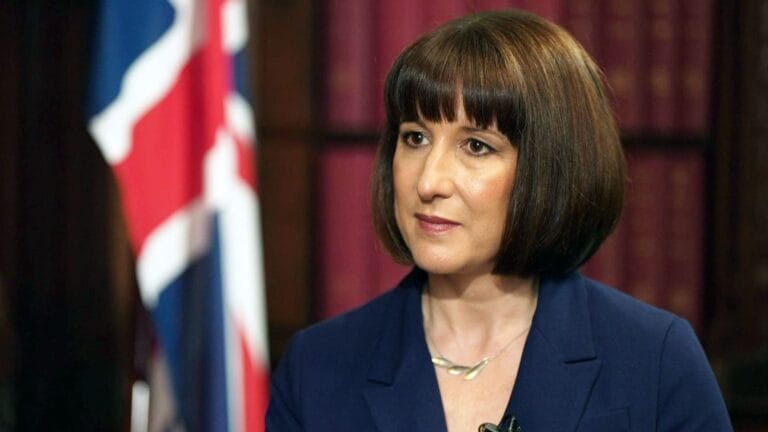🎧 Listen to This Article
Chancellor Rachel Reeves is under mounting pressure to raise taxes in the upcoming Autumn Budget as she navigates the UK’s precarious fiscal outlook. Despite her ambitious plans and the substantial welfare cuts announced in the Spring Statement, the government’s financial margin is alarmingly small, prompting widespread speculation that tax hikes may be unavoidable if the country is to meet its fiscal rules.
Reeves had initially set out a roadmap to meet her self-imposed financial targets, one of which includes not borrowing to fund day-to-day spending. In her Spring Statement, she stressed that these fiscal rules are “non-negotiable,” with a clear emphasis on fiscal discipline and ensuring financial stability—something that eluded former Prime Minister Liz Truss, whose unfunded tax cuts led to turmoil in the markets and a sharp rise in interest rates. However, Reeves is now grappling with a significantly more challenging economic environment, with her projected fiscal headroom of £9.9 billion being the third-lowest since 2010.
This tight margin is particularly concerning given the scale of the UK economy, which spends around £1 trillion annually and raises a similar amount in taxes. As Richard Hughes from the Office for Budget Responsibility (OBR) noted, the £9.9 billion headroom is “a tiny fraction of the risks to the outlook.” Factors such as escalating global trade tensions, a potential downgrade in growth forecasts, and rising borrowing costs have only made the fiscal outlook more uncertain. In fact, this headroom is smaller than the average £30 billion margin historically left by previous chancellors, which highlights the stark limitations Reeves now faces.
Adding to the complexity, unforeseen global events have the potential to upend Reeves’ plans. For instance, US President Donald Trump’s announcement of new tariffs on car imports could directly affect UK businesses, with an estimated 0.2% impact on the UK’s GDP. While this may seem like a small figure, in the context of an already fragile economy, such external shocks could have a disproportionate effect on the country’s financial stability.
At home, UK businesses are facing their own challenges. With a looming rise in National Insurance contributions, an increase in the National Living Wage, and higher business rates set to take effect in April, many businesses have postponed investment decisions, citing rising costs and an uncertain economic climate. Should these concerns translate into job cuts or price hikes, economic growth could take another hit, further eroding the already narrow fiscal headroom.
Given all these factors, if the chancellor’s financial cushion is further diminished, the government faces a stark choice: either significantly cut spending, or raise taxes. Reeves has already announced cuts to welfare and plans to reduce the civil service, including abolishing several quangos like NHS England, but the room for additional cuts is limited, especially in areas like defense and social services, which are already under pressure.
In this context, tax hikes have become increasingly likely, with analysts like Paul Dale from Capital Economics predicting that the government may not have much choice but to raise taxes to stay on track. The Institute for Fiscal Studies (IFS) has also warned that economic and fiscal forecasts are likely to deteriorate further between now and the Autumn Budget, raising the possibility of a more difficult decision ahead.
This uncertainty around tax rises is already causing speculation in the market, with experts and industry leaders waiting to see if Reeves will adhere to her fiscal targets or if the economic strain will force her hand. As Paul Johnson from the IFS points out, “non-defense spending can only be cut so far,” and with so little margin for error, speculation about potential tax increases will only intensify in the coming months. This uncertainty itself could have a negative impact on the economy, as businesses and individuals delay financial decisions in the face of an unpredictable fiscal landscape.
The October Budget will undoubtedly be a crucial moment in the UK’s financial planning, and Chancellor Rachel Reeves will have to carefully balance her commitment to fiscal discipline with the growing need for additional revenue. With global trade tensions, domestic economic pressure, and limited room to maneuver, the government’s strategy in the coming months could shape the UK’s economic future for years to come.
For further details, clarification, contributions, or any concerns regarding this article, please contact us at editorial@tax.news. We value your feedback and are committed to providing accurate and timely information. Please note that our privacy policy will handle all inquiries



